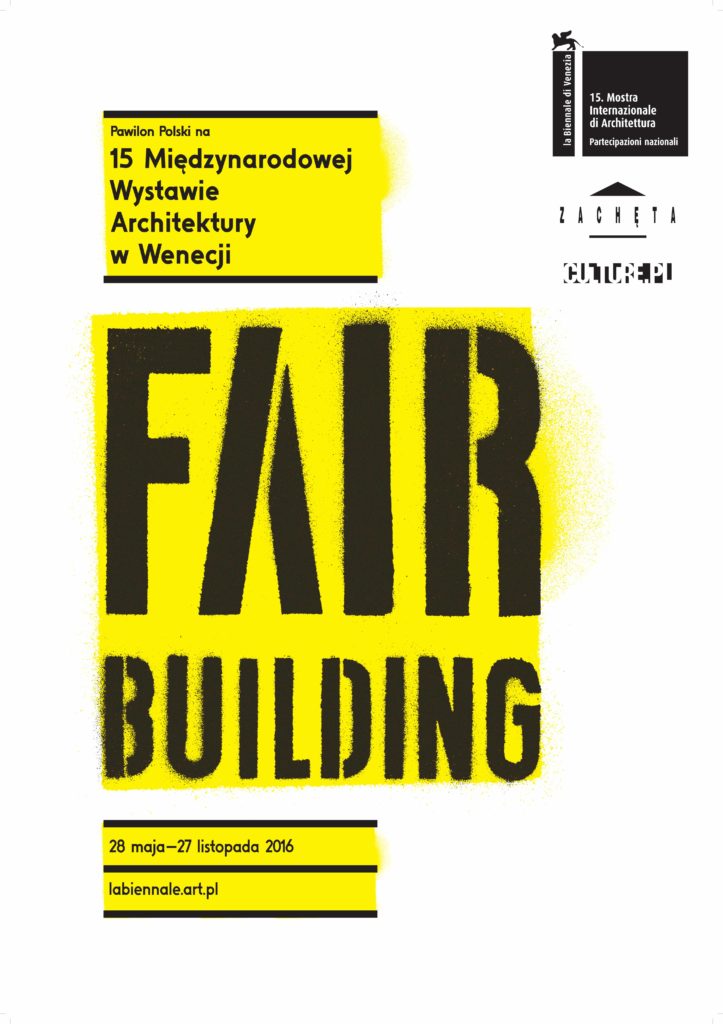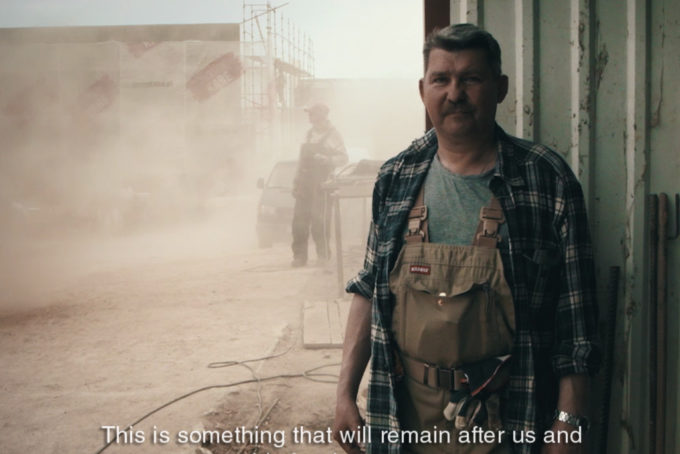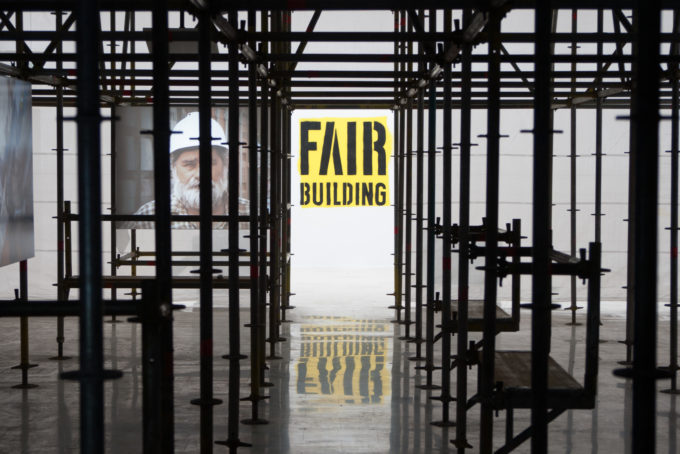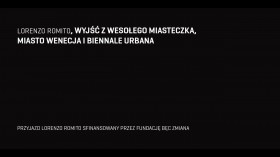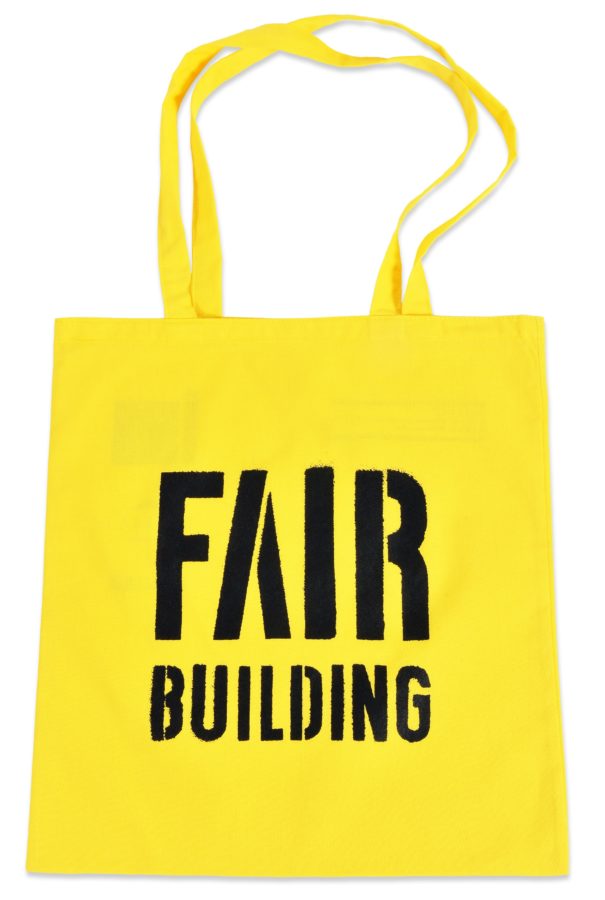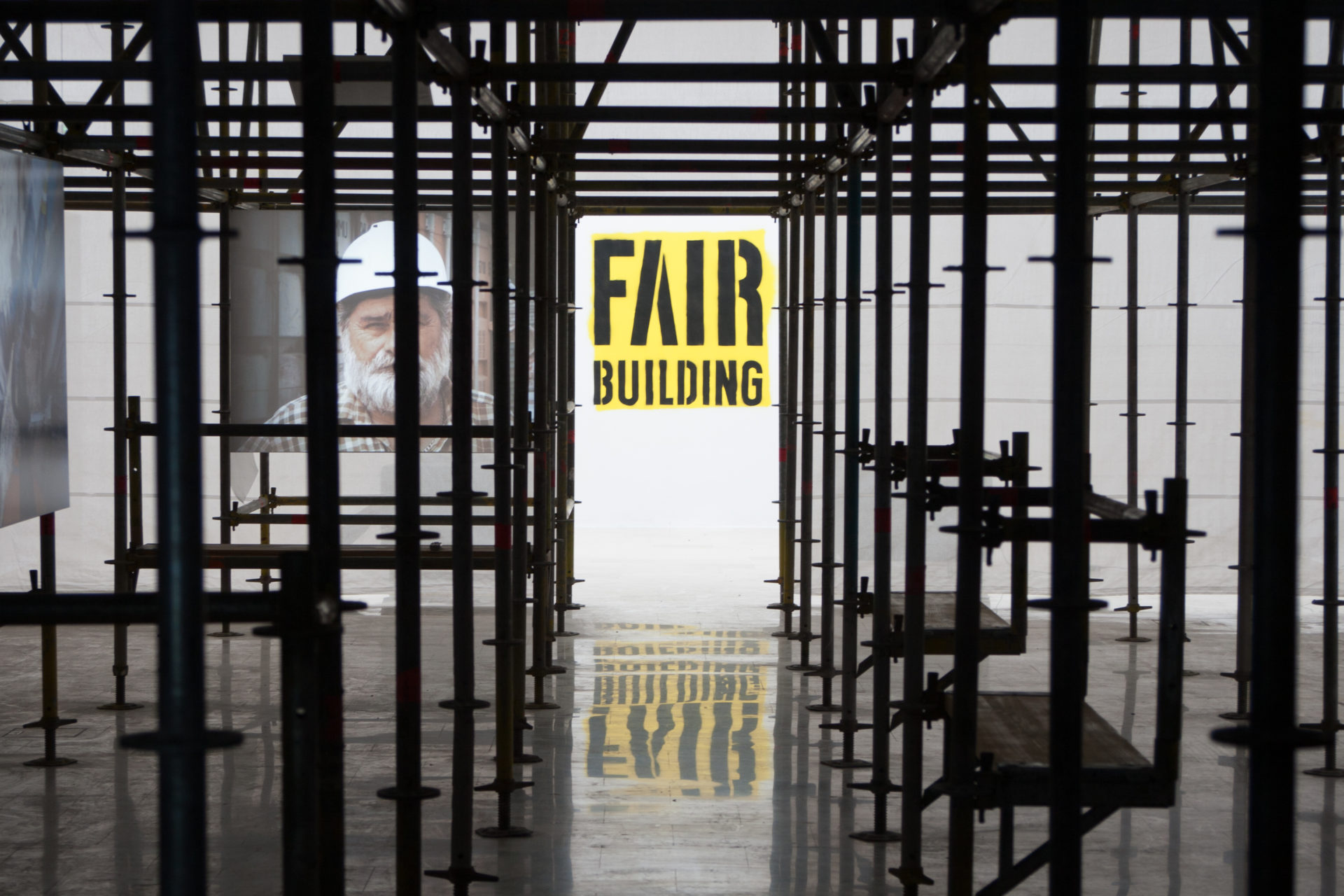
Fair Building
The Polish Pavilion at the Biennale Architettura 2016 directly responds to this year’s theme – Reporting from the Front – by addressing the ethical issues facing one of the most underrepresented participants in architecture: the construction worker. Labour conditions, lack of respect and site accidents plague the industry worldwide but these difficulties often get overlooked in favour of deadlines, budgets and the public demand for new spaces. Curator Dominika Janicka, in cooperation with Martyna Janicka and Michał Gdak, create a full-scale construction site inside the Polish Pavilion and ask the question – why don’t buildings come with fair trade marks?
The curators behind the exhibition Fair Building believe that construction sites represent the frontline in architecture; it is the physical manifestation of any live project and despite technological advancements is still led largely by manual labour. The contribution from these workers is missing from architectural discourse and construction processes remain unpredictable. In a consumer-driven culture we can be more concerned with the standards involved in making chocolate bars than the buildings and spaces that frame contemporary society. This exhibition will focus on the ethical issues surrounding the construction industry and the views of those directly involved.
The pavilion within the Giardini is divided up into two parts. The main section is made up of a module scaffolding installation that forms a direct physical connection to the building site. Documentary videos are screened simultaneously, featuring stories about construction workers, each focusing on a key angle to the industry’s work conditions and construction works characteristics. The other part of the exhibition, resembling an investor’s showroom apartment, explores the industry in numbers with the use of info-graphics and an animated promotional video.
Exhibition curator Dominika Janicka says: “By presenting the stories of persons directly involved in the building process, we ask whether ‘fair trade’ is achievable in the field. If so, what would it be? Is ‘fair building’ possible? We don’t focus on looking for culprits responsible for the abuses occurring at the various stages of the construction process. Rather, we create a space to reflect on how to make this process not only effective but also fair.”
- YEAR2016
- CATEGORY Biennale Architettura
- EDITION15
- DATES28.05 – 27.11
- COMMISSIONERHanna Wróblewska
- CURATORDominika Janicka
Authors
Dominika Janicka (b. 1986) studied Architecture at the Gdańsk Institute of Technology and the Institut Supérieur d’Architecture La Cambre in Brussels. She has worked with architecture firms based in Poland, Belgium, Germany and China. Author of successful competition entries. Member of the design collective AD12, and co-author with it of several critically acclaimed and award-winning designs, e.g. City Transformers in Gdynia (Best Public Space in the Sztuka Architektury plebiscite) or Bus With Us (nominated for Dobry Wzór 2014). Since 2014, head of the Public Space Studio at the Institute of Design Kielce.
Martyna Janicka (b. 1991) majored in Design at the Gdańsk Academy of Fine Arts and in Service Design & Innovation Design at the Glasgow School of Art. She gained exhibition-organising experience during the Gdynia Design Days and the Milan Design Week. Participant of Designship, an international programme integrating designers from the Baltic states. She currently researches design trends and innovations for Siemens in Munich.
Michał Gdak (b. 1980) majored in Architecture at TU Delft in the Netherlands, the Vitus Bering University College in Denmark, and the Wrocław University of Technology. He also studied sculpture at the Wrocław Academy of Fine Arts and the Royal Academy of Fine Arts in Valencia. Participant of numerous retreats, exhibitions, and workshops. Student group facilitator in design workshops and academic classes. He worked for OMA and Rotterdam’s Inter.National.Design, and collaborated with Studio Arne Quinze, Belgium. Laureate of numerous competitions in the fields of architecture and art. Italian Design School coordinator at the Institute Design Kielce, where he runs the Public Space Studio since 2013.

